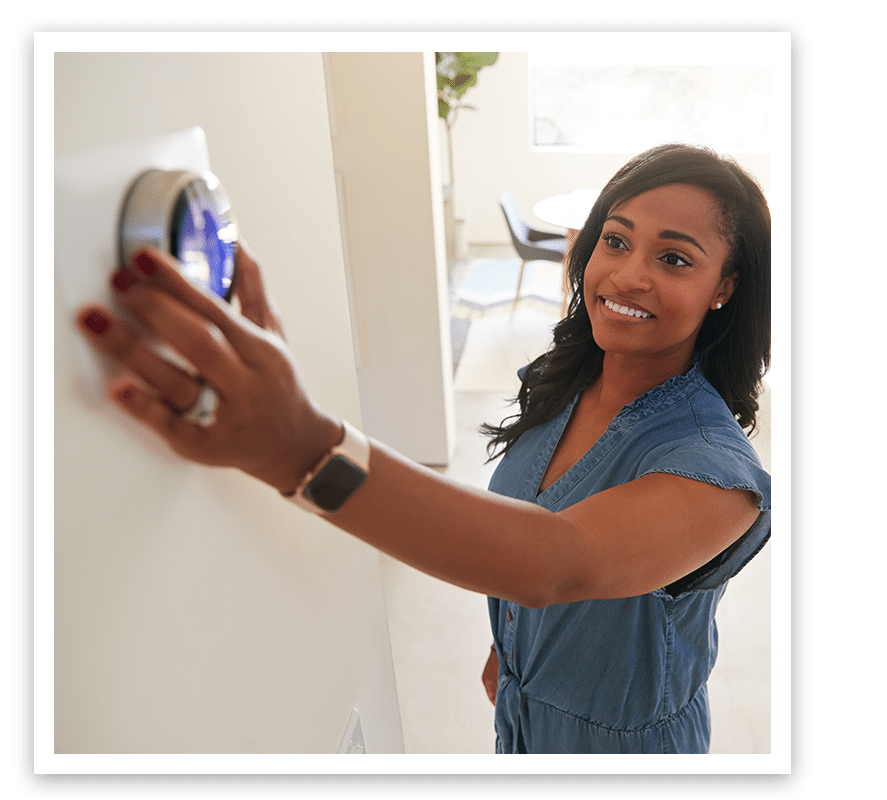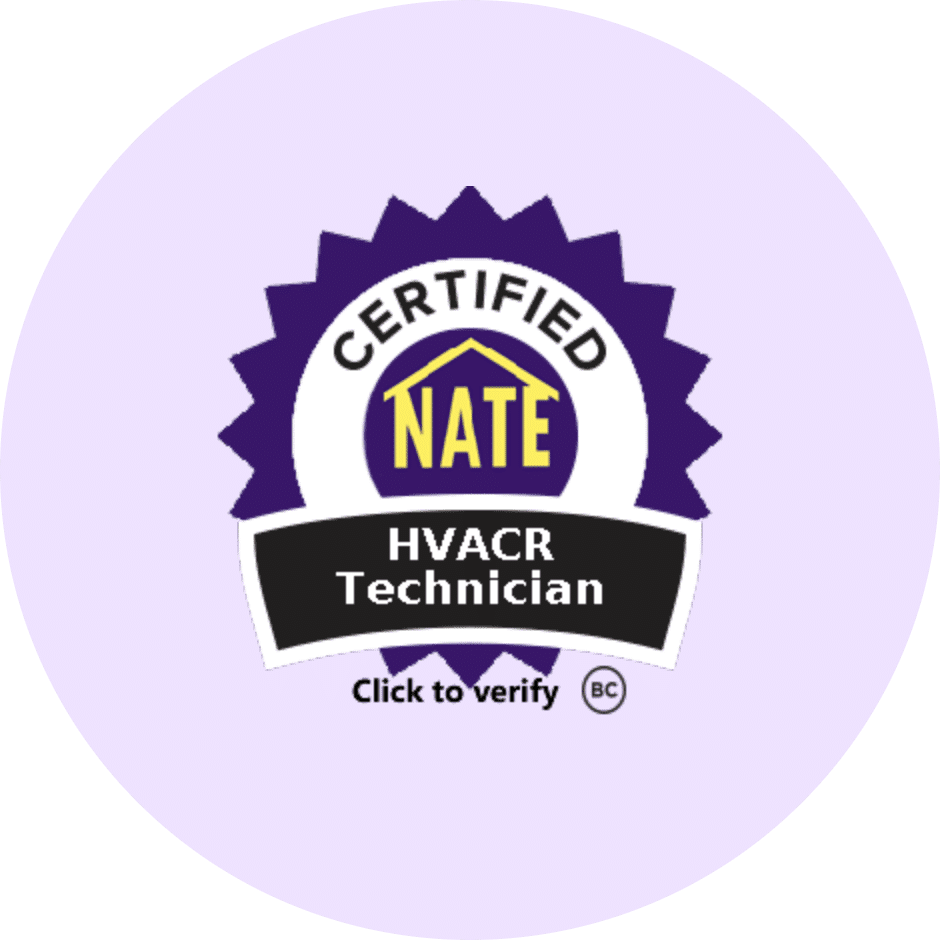Air Conditioning Tips
Air Conditioning Tips
Please let the information below remind you to stay cool and keep your A/C running at peak performance. The following is information you should know and use to help ensure that your air-conditioning is keeping you as cool as possible and working and cooling as efficiently as possible, saving you money.
DIY Maintenance Information
The following should help you decide if you need a professional to service your air-conditioning unit.
- Air filter(s) MUST be clean. They should be located near the return air duct adjacent to the air handler or in a return air grill(s). Check your air filter every 30 to 90 days to make sure it is clean. Depending of the house, i.e. if you have animals you may need to clean the air filter more often. (Go clean them now!)
- Flip the switch on the thermostat for the fan setting to FAN ON, not AUTO. This will run the indoor fan nonstop. The outside A/C unit will still cycle with a call for cooling from the thermostat. The constant air moving will keep you cooler. You can probably keep the thermostat a degree or two higher then normal and still feel comfortable. You will also maintain a more even temperature between upstairs and downstairs. This will SAVE you MONEY because the outdoor condenser will not come on as much!
- Make sure that you wash the outside condenser coil once a year. If it’s dirty, the A/C will run hot and inefficient. A sign of the coil being dirty is the small exposed copper (pipe) (tubing) line, usually 3/8″ O/D connecting the inside unit with the outside unit will be HOT to the touch.
- A/C is low on refrigerant
- The outdoor condenser coil is dirty. Those are the two most common reasons for it to be hot to the touch.
- If the small exposed 3/8″ copper pipe connecting the inside unit with the outside unit is hot to the touch there can be several reasons why;
- “Warm Rooms” on the lower levels of the house where it is cooler cut back or cut off some vent registers (Diffuser) and make sure that all the ones on the upper floors where it is warmer are open all the way! Also, see paragraphs #2 & #9.
- “Doors” if you close the door to a room make sure that there is about a 3/4″ gap between the bottom of the door and the floor. You may have had carpet put down on the floor and now there is no gap. This is necessary if you have a central return air duct in the hallway. The return air ducts need to pull the warm air from the room.
- Never leave the house and turn OFF the A/C. then come back home and turn it on and expect it to cool the house anytime soon. Doing this will not allow the unit to cool down the house for MANY hours. You can set the temperature up five to ten degrees but NOT OFF. This is because of Latent heat buildup in the walls and furniture in the house and will make the A/C work harder to remove the heat, this takes a long time.
- Never turn the A/C off then back on in less then five minutes, this will short-cycle the compressor and can trip breakers, blow fuses, or cause permanent damage the compressor. You should have a time-delay install on the A/C to prevent this during power outages! Some setback thermostats have a time-delay built-in. Having a start capacitor and relay is a good idea. This will increase the life expectancy of the compressor by starting faster thus keeping motor temperature down, using less electric to start.
- Keep blinds closed, curtains drawn, window shades drawn, a working attic fan would be a good idea, plenty of insulation in the ceiling & walls, air tight storm windows, keep outside doors and openings close, etc.
- “Icing of the indoor coil or the large insulated covered copper pipe “There are two main reasons for this, lack of air flow or low on refrigerant. Lack of air flow can be a dirty air filter, dirty indoor evaporator coil, dirty fan blades, damper in duct restricting air flow.
- “Water inside around air-handler” see paragraph 10. The condensate line is a drain pipe coming from the indoor evaporator coil to a indoor drain or to the outside. This can become clogged and cause water to backup and can produce about five gallons of water an hour. This is where all the humidity and moisture from the house goes.
- You should NEVER need to add refrigerant to a system, if you are adding refrigerant this means that there is a refrigerant leak in the system that SHOULD be fixed! “Why KILL the Ozone layer?”
- Checking the cooling with a thermometer. There should be a 15-20 degree temperature drop across the indoor coil at the air handler. Check the temperature drop in the duct close to the coil, if air coming into the coil is 75 degrees then the air leaving the coil should be 60-55 degrees. If it is higher or lower there is probably something wrong. Too high of a drop, IE more then 20 degrees drop, could mean lack of air flow or low on refrigerant. Less than a 15-degree drop could mean too much air flow, dirty outside coil or low on refrigerant.
- Never cover the A/C with plastic or an air tight cover; this will cause it to rust.
- Do NOT let animals (Cats) (Dogs) etc. Urinate on the outside coil. This will cause it to corrode (rust) and then leak refrigerant.
- Keep grass & weeds from blocking air flow on outside A/C.
- Do NOT build a deck close to the top of the outside A/C or anything else that could cause the warm discharge air to re-circulate back to the unit.
- Fuses, Circuit Breakers or wires should never be hot to the touch; if they are hot you may have a sizing problem or a loose or bad electrical connection..
- You can stop hear, the rest may not interest you.
ALWAYS HIRE A PROFESSIONAL, LICENSED CONTRACTOR
When you need to have your equipment repaired/serviced make sure you use a licensed contractor who should be insured and obtain permits from city/county officials when required/necessary. Or a member of the (PHCC) Plumbing, Heating, Cooling Contractors Association. PHCC contractors are professionals who adhere to a published code of ethics that improves the industry and protects your health, certified by the State Board of Contractors. They also have licenses, bonds, insurance and obtain permits when required by local municipalities. The PHCC logo is your assurance of quality in this profession! Isn’t your health & safety worth it? It should be! Call 1-800-533-7694 for more information about the PHCC.
WHAT TO KNOW ABOUT REFRIGERANT
Air-Conditioners DO NOT add cool air. What they do is remove warm air and put it outside. R-22 & R-12 ETC.. Refrigerant is a man-made product invented by DuPont and given the trade name FREON.
The temperature of refrigerant is directly relate to the pressure it is at and vise versa, IE.R-22 at 0 psi is -40 degrees below zero or at 60 psi it at 32 degrees. This is misleading; the temperature change is NOT related to pressure really, but almost totally tied to the change from a liquid to a gas.
When liquid Freon is expanded to a gas it gets really cold (latent heat of evaporation) and when the warm gas is compressed to a liquid it get hot. The temperature change in say compressing liquid Freon to a higher pressure (adiabatic compression) is small. You see the same effect when you crack the valve on a CO2 (or propane) bottle for example. You will get a smaller effect with a pure gas, like when you fill a Scuba tank, (gets warm) or drain it quickly (valve gets cold right at the expansion point, but this effect is not great enough to run an AC system.
The physics of phase change from a gas to a liquid and vice versa drive most weather for example as well…. With water it takes as (I recall) 560 (or was it 590…) times as much energy to boil water from 100 C liquid to 100 C gas as it does to raise the same amount of water 1 C in temperature. Freon is less dramatic than water in terms of this energy amount, but it boils at a much more convenient temperature for human AC units than does water. If you wanted the inside of your house to be 100 C you might want to run water in your AC.
Keep in mind that heat goes toward cold and not cool to heat. All the A/C compressor does is to pump vapor to create a high and low pressure, IE. A low pressure at the inside coil for a low temperature for the refrigerant to absorb the heat in the house and a high pressure at the outside coil to give off the heat the refrigerant absorbed from the inside coil to outside.
MAKE SURE YOUR AC IS CORRECTLY SIZED
Over sized A/C will run short cycles and not remove the humidity and moisture from the house, an under sized unit will not be able to keep the house cool on a hot day. You MUST be careful to get the correct size A/C for your house. A/C’s are sized by tons, there are 12,000 BTU’S to a ton of cooling (“Ton” means 12,000 BTU’S of heat is needed to melt one 1 ton (2,000 Pounds of ice)
- You need to move 400 CFM of air per ton of cooling across the indoor coil.
- 450 CFM for Heat Pumps.
Each CFM (Cubic foot per minute) of air will carry 26.7 BTU’s of cooling. You need a heat-gain calculation done per room to get the proper (CFM/BTUs) to be delivered to each room and the total (Tons/BTUs) needed to cool the house based on designed weather conditions in your area.
The above is my personal opinion/advice and please feel free to obtain other opinions.
Ensuring Your Satisfaction
- Customer Focused
- Honest Service
- 3rd Generation Experts
- Locally Owned

HOW MAY WE HELP YOU?
OUR SERVICES
- Air Conditioning Service
- -AC Repair
- -AC Installation
- -AC Replacement
- -AC Maintenance
- -Mini Split
- -AC Tips
- Heating Service
- -Heating Repair
- -Heating Installation
- -Heating Replacement
- -Heating Maintenance
- -Heat Pumps
- Indoor Air Quality
- Water Heaters
- -HOT WATER HEATERS
- -Tankless water heaters
- -HEAT PUMP WATER HEATERS
- Residential Plumbing
- Commercial Plumbing
- Drain Services


